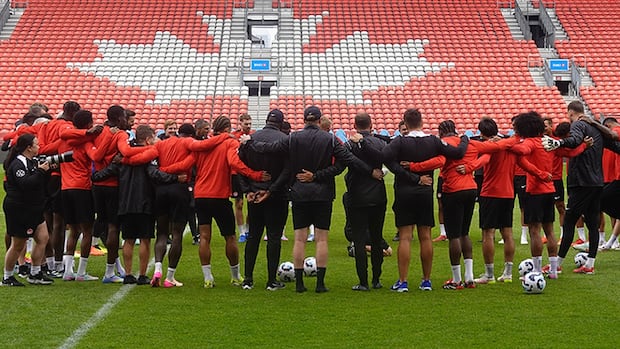[
While some organizations have published clear air quality thresholds or contingency protocols for wildfire smoke, FIFA’s plans remain unclear less than a year out from the 2026 World Cup.
A day after Toronto’s air quality was among the worst in the world, the organizing committee for the World Cup in Canada declined to reveal guidelines for postponement or air-quality-related contingencies with FIFA. No policies are posted publicly.
The World Cup will run from June 11 to July 19, 2026. Canada will stage 13 games — seven in Vancouver and six in Toronto.
The Air Quality Health Index rating for Toronto was over 10, or “very high risk,” on Monday morning, dropping to a “high risk” rating of 8 by late afternoon.
In the CFL, meanwhile, games can’t be played when the AQHI surpasses a threshold of seven, according to an agreement between the league and its players. CFL stadiums are also equipped with air-quality sensors to provide real-time readings.
The CFL postponed the Saskatchewan Roughriders-Calgary Stampeders game in Regina from Friday night to Saturday afternoon this past weekend due to air quality issues, as wildfires from northern Saskatchewan pushed the AQHI above 10.
Many minor soccer associations in Canada also recommend delaying or rescheduling games if the AQHI is 7 or higher.
Dr. Andrew Halayko, a professor of physiology and pathophysiology at the University of Manitoba, calls anything above 10 a “no-brainer” for postponing sporting events. He also believes sporting events on days when the AQHI rises higher than 7 should be rescheduled due to health concerns.
Halayko adds while people should be able to make their own health decisions, sometimes the general population needs guidance.
WATCH | CBC Sports analyst Chris Jones examines World Cup impact:
With the 2026 World Cup now one year away, CBC Sports’ Chris Jones examines it’s impact and what it will mean to Canada in this video essay.

